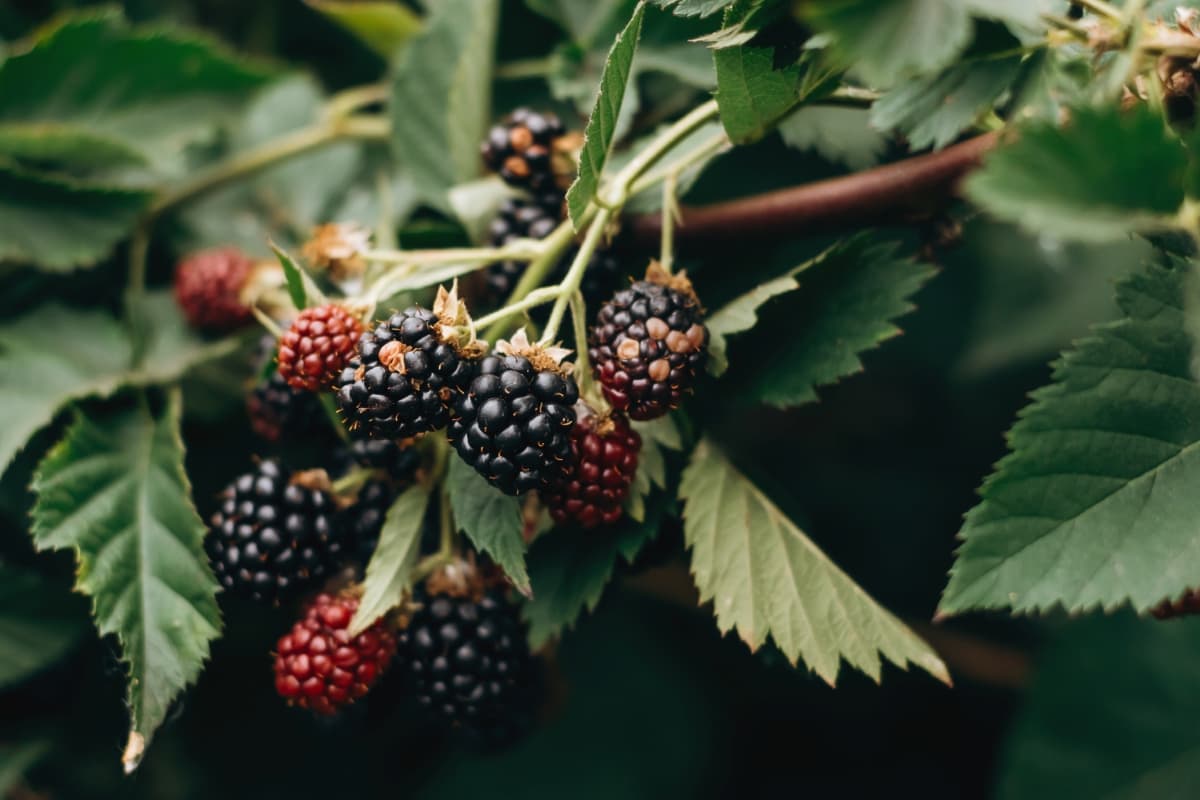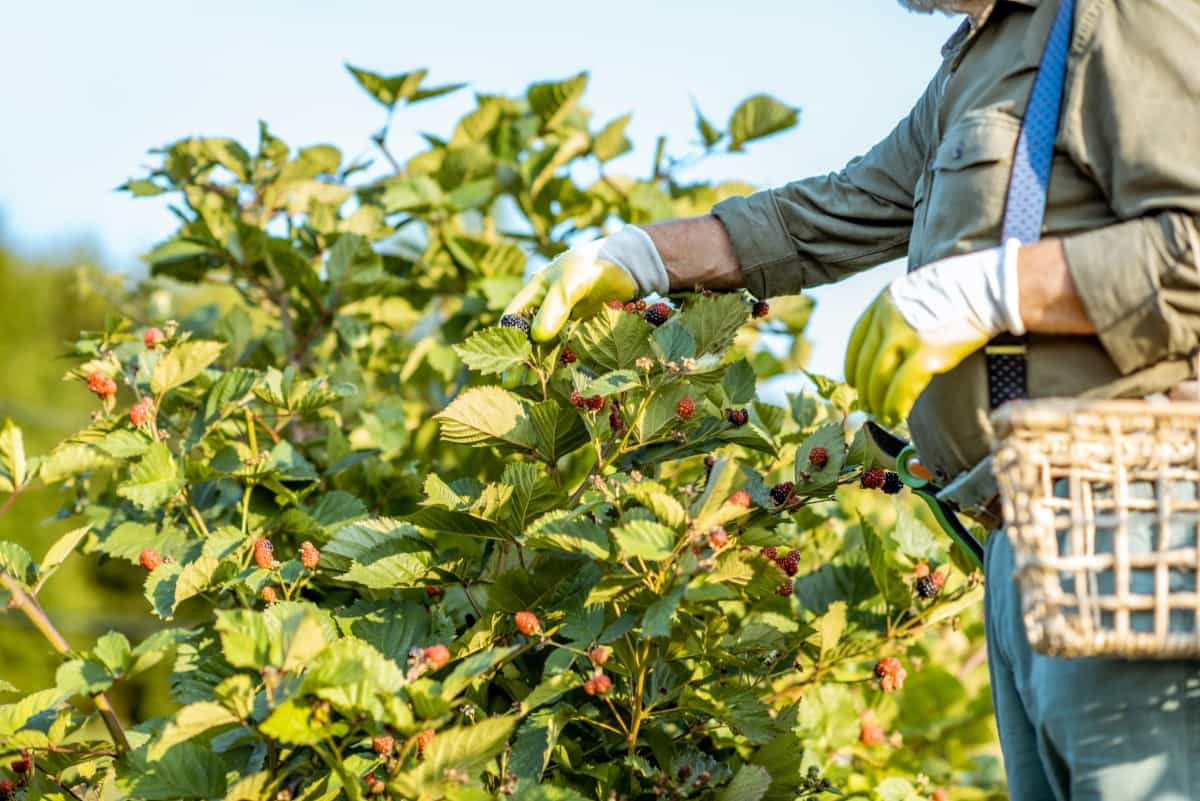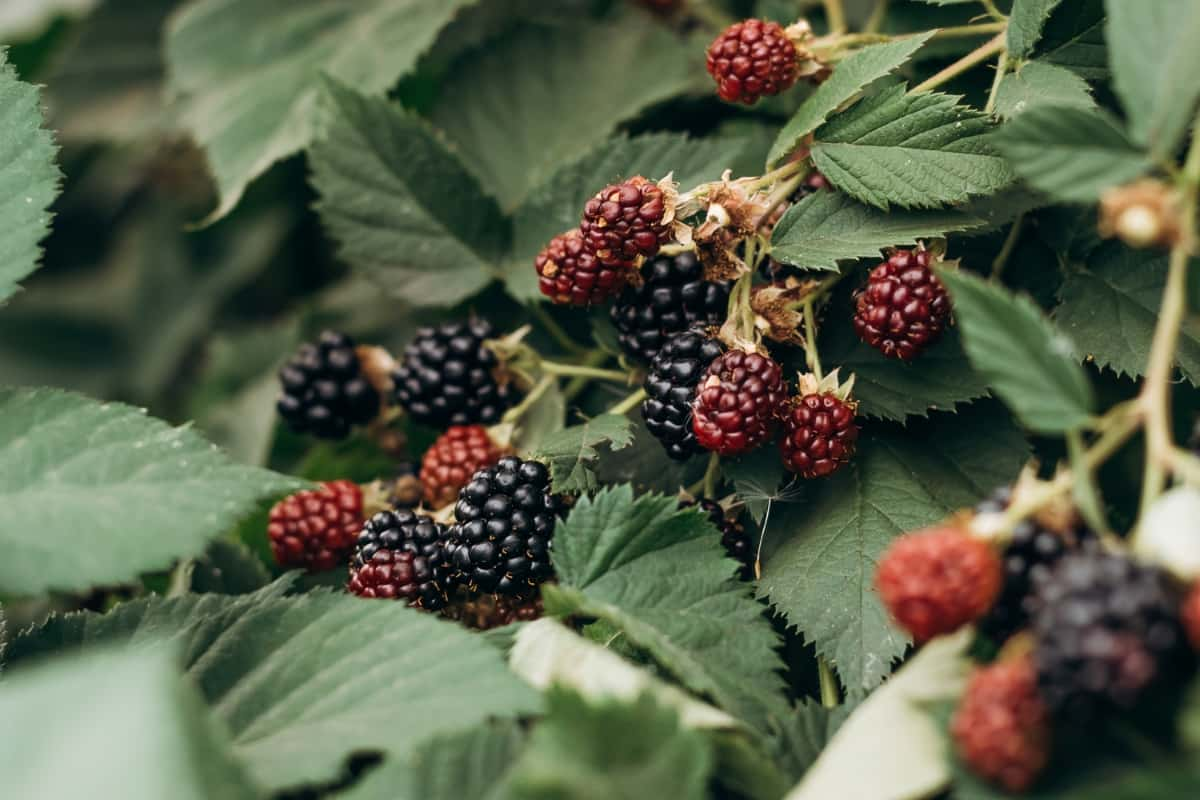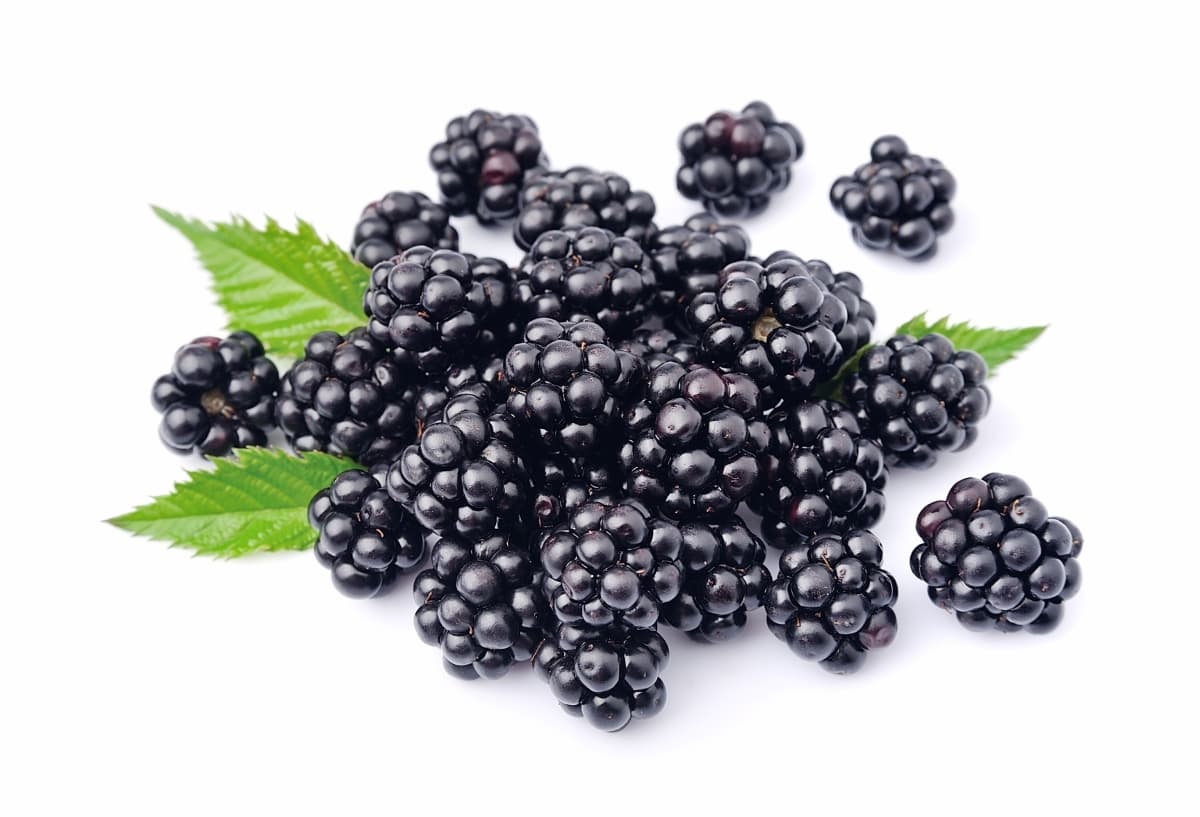Greetings from the world of organic blackberry farming! Learn how to prevent fruit rot naturally so that you can reap many harvests. Discover non-chemical, environmentally friendly remedies that take a comprehensive approach to a flourishing blackberry crop. Let’s explore how to protect your berries organically.

How to Prevent Blackberry Fruit Rot Naturally
Understanding the Causes of Blackberry Fruit Rot: A Natural Approach to Prevention
Fungi like Botrytis cinerea are a common cause of blackberry fruit rot, which is a problem. These fungi increase in humid environments and disperse by means of spores. Use preventative measures that are natural to counter this. First, keep the correct space between plants and prune them to improve air circulation.
Second, use organic mulch materials to regulate moisture content and prevent the growth of fungi in order to stop the spread of the infection. Remove the contaminated berries right away. One natural fungicide that can be used prophylactically is neem oil. To guarantee a plentiful and disease-free harvest, routinely check your blackberry patch for early warning indicators and take prompt action to resolve any problems.
Building Healthy Soil: The Foundation for Preventing Blackberry Fruit Rot Naturally
Creating rich soil is essential to avoiding natural blackberry fruit rot. vermi Compost or other organic matter can be added to improve the fertility and soil structure. As a result of encouraging advantageous microbial activity, an ecosystem is balanced. Keep the pH of your soil between 5.5 and 7.0 to maximize the availability of nutrients for your blackberry bushes. Reduce the burden of illness by rotating your crops, and stop soil erosion by using cover crops.
Mulching contributes to soil temperature regulation, weed suppression, and moisture conservation. Steer clear of overfertilization, as this can cause excessive vegetative growth, which increases the vulnerability of plants to disease. This all-encompassing strategy promotes robust soil, which guarantees healthy blackberry bushes and reduces the likelihood of fruit rot.
Proper Pruning Techniques: Promoting Air Circulation to Reduce Blackberry Fruit Rot
Pruning must be done properly to prevent blackberry fruit rot. Cut off any diseased or dead canes at the base first. Reduce side branches to improve airflow, which is a major rot-prevention measure. Pruning the primary cane to encourage vertical growth will help you maintain a central leader.
To ensure ideal spacing, thin out congested canes on a regular basis. Use a 45-degree cut angle while trimming off lateral branches. Prune the upper part of the plant to promote light penetration and inhibit the growth of fungi. To reduce stress on the plant, prune in the dormant season. Pruning that is organized and consistent promotes airflow, which lowers humidity and lowers the chance of blackberry fruit rot.
Beneficial Insect Allies: Harnessing Nature’s Pest Control to Prevent Fruit Rot
As agricultural ecosystems’ natural pest controllers, beneficial insect companions provide a remedy for fruit rot prevention. Ladybugs, for instance, eat aphids, protecting fruit harvests from harm. In addition, parasitic wasps regulate the population of dangerous insects by laying their eggs in them. Chemical pesticides are not as necessary, thanks to this symbiotic interaction.
In case you missed it: 1-Acre Blackberry Farming Project Report: Production Economics, Cost and Profit Analysis

These helpful insects are drawn to orchards with a wide plant mix, which promotes a healthy ecosystem. Using the resources found in nature helps to ensure healthier fruit yields, minimize environmental effects, and advance sustainable agriculture. Adopting this all-encompassing strategy improves crop resilience and protects fruit quality, paving the way for more sustainable and productive farming in the future.
Sustainable Irrigation Practices: Balancing Moisture Levels to Ward off Blackberry Fruit Rot
Sustainable irrigation practices play a pivotal role in preventing blackberry fruit rot by maintaining optimal moisture levels. To counter this issue, employing drip irrigation systems helps regulate water distribution efficiently. These systems reduce water waste and promote soil moisture balance, which is crucial for blackberry health.
Implementing rain sensors in conjunction with smart irrigation controllers enhances precision, preventing overwatering. Additionally, adopting mulching techniques minimizes soil moisture evaporation, creating a favorable environment for blackberry plants. Sustainable irrigation not only safeguards against fruit rot but also conserves water resources, fostering a resilient and eco-friendly approach to berry cultivation.
Utilizing Organic Mulch: A Protective Barrier against Blackberry Fruit Rot
An effective barrier against blackberry fruit rot is organic mulch. This barrier keeps soil splashing off the berries, which can lead to rot. By inhibiting fungal growth, a 3–4-inch layer of organic mulch applied around blackberry plants helps prevent disease from spreading. Mulch also controls soil moisture, which lessens the environment and encourages decay.
It also functions as a temperature buffer, which makes the environment less conducive to the illness. Adding organic mulch improves soil fertility and structure while protecting the berries. Mulching is an easy-to-use but effective tactic that is crucial to growing robust blackberry crops.
Homemade Organic Sprays: Natural Solutions for Combating Blackberry Fruit Rot
Homemade organic sprays provide an all-natural protection against blackberry fruit rot. One quart of water, one spoon of baking soda, and a few Ml of dish soap are combined in a straightforward mixture. When used every two weeks, this treatment helps stop the fungus that causes fruit rot from growing.
In case you missed it: How to Increase Flowers in Blackberries: Explained in 10 Simple Steps for Higher Yield and Profit

Renowned for its antifungal qualities, neem oil can also be sprayed on blackberry plants after being diluted with water. A further useful organic repellent is a mixture of one part apple cider vinegar and ten parts water. Applying these DIY sprays on a regular basis offers a sustainable and chemical-free way to fight blackberry fruit rot.
Vigilant Harvesting and Storage: Preventing Fruit Rot through Proper Handling
Preventing fruit rot requires careful harvesting and storage. Fruits that are harvested in a timely manner—ideally at their ripest—are less likely to decay. Careful care after harvest is essential to prevent decay. Proper ventilation during storage reduces the build-up of moisture, which is a primary cause of rot.
It is crucial to use hygienic containers and to check on fruits that have been preserved frequently. Further strengthening of storage procedures includes controlling temperature, preserving ideal humidity levels, and avoiding combining ripe and immature fruits. In general, fruit quality is preserved, and the risk of rot is reduced by exercising caution during the harvesting and storage processes.
The Power of Preventative Care: Maintaining a Healthy Blackberry Patch to Avoid Fruit Rot
To reduce the possibility of fruit rot and ensure a healthy blackberry crop, preventative maintenance is essential. Choose a location that has plenty of sunlight, good drainage, and fertile soil first. Regular pruning will improve airflow and sunlight penetration while lowering moisture levels around the berries.
Mulching preserves soil moisture and aids in weed control. Adopt a stringent pest management strategy and take immediate action to neutralize any hazards. Water the soil frequently enough to keep it moist but not overlogged. Keep an eye out for disease symptoms on your plants, and remove any berries that seem sick right away to stop the rot from spreading. Together, these methods strengthen the blackberry patch and create a healthy, disease-resistant ecosystem.
Frequently Asked Questions (FAQ) on Blackberry Fruit Rot
Can I Eat Blackberries that Show Early Signs of Rot?
It is advisable to avoid consuming berries showing signs of rot, as the rot can spread quickly. Promptly remove and dispose of any affected berries to prevent further contamination within the patch.
Are There Specific Weather Conditions that Favor Fruit Rot Development?
Humid and wet conditions, common in late spring and summer, create an environment conducive to fruit rot development. Monitoring weather patterns and adjusting preventative measures accordingly is essential for a healthy blackberry patch.
In case you missed it: How to Grow Holly Berries at Home: Propagation to Harvest

Conclusion
Safeguarding blackberry crops from fruit rot can be achieved naturally and organically. Employing preventive measures such as proper spacing, mulching, and timely pruning, combined with natural treatments like neem oil and compost teas, establishes a holistic approach to ensure a thriving and disease-resistant blackberry harvest.
- Feed Your Flock for Less: Top 10 Tips to Save on Chicken Feed
- Ultimate Guide to Ossabaw Island Hog: Breeding, Raising, Diet, and Care
- Hatching Answers: The Top 10 Reasons Your Chickens Aren’t Laying Eggs
- Eggs and Economics: Breaking Down the Cost of Raising Backyard Chickens
- Defend Your Greens: Proven Methods to Keep Iguanas Out of Your Garden
- Ultimate Guide to Cinnamon Queen Chicken: A Comprehensive Guide for Beginners
- Ultimate Guide to California Tan Chicken: Breeding, Raising, Diet, Egg-Production and Care
- Ultimate Guide to Marsh Daisy Chicken: Breeding, Raising, Diet, and Care
- 10 Types of Chicken Farming Businesses You Can Start for Profits